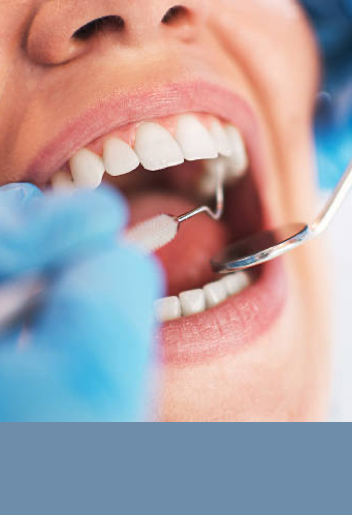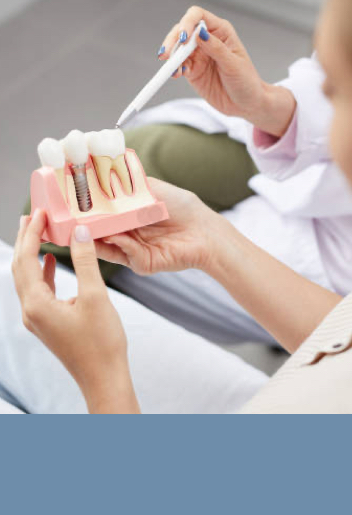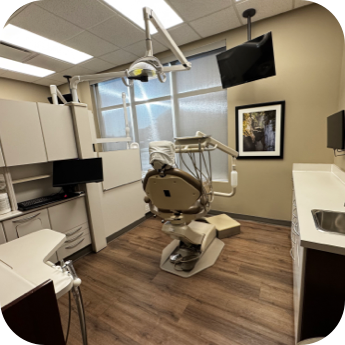If you have jaw pain, you’ve likely wondered how long it might stick around. The duration of temporomandibular joint disorder (TMD) can vary a lot from person to person. For some, the discomfort is temporary and fades within a few days or weeks, while for others, it can be a more persistent issue.
The timeline for TMD discomfort and the path to relief often depend on the underlying cause and the steps you take to manage it. Let’s explore what you can expect from TMD symptoms and how our family-centred practice can help you find comfort.
What to Expect from TMJ Symptoms
TMJ disorders (medically referred to as TMD) progress differently for everyone. Mild symptoms may even go away on their own with a little time and rest. However, if the pain affects your quality of life, it’s helpful to know what signs to look for and when to seek help.
Common Signs of a TMJ Disorder
- Jaw or face pain that feels dull and achy
- Headaches or migraines
- Jaw stiffness or locking
- Clicking, popping, or grinding sounds when you move your jaw
- Trouble opening or closing your mouth fully
- Earaches or a ringing sound in your ears
- Neck or shoulder pain
Temporary vs. Chronic Pain
Temporary discomfort often happens after a specific event, like a long dental procedure or a minor injury. This type of pain usually resolves within a few days to a couple of weeks. Chronic pain may last for months or longer and is often linked to ongoing habits like teeth grinding or conditions like arthritis.
What Else Can Feel Like TMD?
Sometimes, other issues can cause symptoms that feel like TMD. Sudden tooth pain, sinus problems, or even ear infections can create similar facial pain. A clear diagnosis from a professional can help you find the true source of your discomfort.
What Causes TMD Flare-Ups & How to Lower Your Risk
Certain habits and conditions can trigger or worsen TMD symptoms.
Common Causes of Jaw Pain
- An injury to your jaw
- Teeth grinding or clenching, especially at night
- Arthritis in the jaw joint
- Stress, which can cause you to tighten your jaw muscles
- A misaligned bite
What Not to Do During a TMD Flare-Up
When your jaw is feeling sore, you don’t want to make things worse. Try to avoid chewing gum, eating hard or chewy foods like tough bread or candy, and opening your mouth too wide when you yawn or eat.
At-Home Care for Jaw Discomfort
For many people with mild TMD pain, a few simple at-home remedies can provide significant relief. These steps can help calm an acute flare-up and ease your discomfort.
Simple Steps for Relief
- Rest Your Jaw: Try to keep your teeth slightly apart as much as possible to relax your jaw muscles.
- Eat Soft Foods: Stick to foods like yogurt, soup, and mashed potatoes to give your jaw a break.
- Use Ice or Heat: Apply a cold pack or a warm cloth to the side of your face for about 15 minutes to reduce pain and swelling.
- Try Gentle Massage: Gently massage the muscles around your jaw to help them relax.
Professional TMJ Treatments

If your jaw pain doesn’t improve with at-home care, or it’s interfering with your daily life, it’s time to see a professional. As your dentist in Northeast Calgary, we can help figure out the cause of your TMJ disorder and create a treatment plan that works for you.
Therapies & Non-Surgical Options
Most cases of TMD can be managed without surgery. Our team at Country Hills Dental Centre focuses on conservative treatments first to provide relief and improve your jaw function.
- Custom Mouth Guards: We can create a custom-fit oral appliance, or splint, to wear at night. This helps prevent teeth grinding and allows your jaw to rest in a more comfortable position.
- Jaw Exercises: We can show you gentle stretching and strengthening exercises to improve jaw movement and reduce muscle tension.
- Medication Suggestions: For some people, over-the-counter pain relievers or anti-inflammatory medicines can help manage symptoms during a flare-up.
- Injectable Treatments: Therapeutic injectable treatments can also provide targeted relief for jaw muscle tension.
Recovery Time & Long-Term Outlook
With the right care, most people find relief from TMD symptoms. The path to recovery depends on the cause of your pain and the treatment approach you take.
How Long Does Recovery Take?
For temporary TMD issues, you might feel better within a few weeks. For more chronic conditions linked to habits like grinding or arthritis, management is often an ongoing process. The goal is to control symptoms and maintain comfortable jaw function.
Does TMD Go Away for Good?
While some TMJ-related problems resolve completely, others may require long-term management. With proper treatment and awareness of your triggers, you can significantly reduce the frequency and severity of flare-ups, allowing you to live with little to no discomfort.
When to Follow Up with Your Dentist
If your jaw pain continues or gets worse, let us know. We’re here to help you find a solution that restores comfort and function to your jaw. Regular dental check-ups allow us to monitor your progress and adjust your treatment plan as needed.
At Country Hills Dental, we understand how disruptive jaw pain can be to your daily life. Our friendly team is here to listen to your concerns and provide personalized care in a warm and welcoming environment. If you’re struggling with TMJ symptoms, contact us today to book an appointment and start your journey toward relief.












